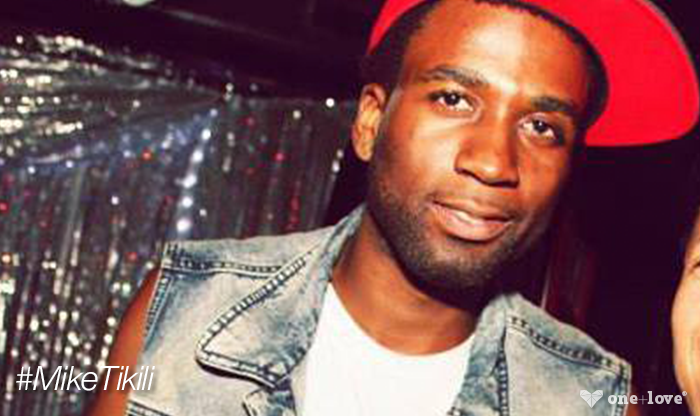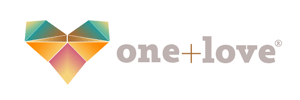
HIV/AIDS Activist Mike Tikili Acts Up (Part 2)
Mike Tikili is a community organizer of Nigerian descent who was raised in Brooklyn and Guyana. He became involved with Health Global Access Project (Health GAP) through his work with QUEEROCRACY, a grassroots activism group that focuses on global health, the AIDS epidemic, and other issues that affect queer people throughout the world. He holds a Master of Business Management degree from Duke University’s Fuqua School of Business and a Bachelor of Science in Psychology and Neuroscience from Duke University.
Mike has been featured for his activism in the Village Voice and various other media outlets, and was the recipient of the 2012 Chloes Award for his participation with the We Can End AIDS Mobilization. Poz Magazine named him as one of the most effective AIDS activists in 2012. He currently resides in New York City and continues to work with QUEEROCRACY and ACT UP New York to fight for an end to the AIDS pandemic and for social and economic justice.
What sparked your co-founding of Queerocracy?
I joined Queerocracy because I found like-minded queers who wanted more than marriage equality and realized that HIV/AIDS was still at the forefront of our struggle. The focus on direct action really appealed to my inner rebel–that prefers making noise and forcing change rather than passively taking whatever “the man” decides to throw. Over time, the collective just sort of restructured and turned into a non-profit.
How is the Robin Hood Tax campaign coming along?
Globally, the campaign is coming along well. The financial transaction tax is making major strides in the EU. Here in the U.S. we still need more political will from our leaders who prioritize the needs of large corporations and the financial industry more than the populations they are supposed to be representing and serving. The Robin Hood Tax addresses and provides a solution to many of the social issues plaguing our country, including the lack of commitment and resources in the fight against the domestic and global AIDS crisis. We need more people to hold their elected officials accountable and get them to support legislation like H.R. 1579, the Inclusive Prosperity Act (the Robin Hood Tax) that actually benefits the people.
When it comes to the HIV/AIDS awareness~advocacy~agitation work you’re doing, what are your frustrations? What excites you?
Funding in general is a huge frustration. As someone working in the non-profit world, I feel that we spend so much time trying to keep our doors open and structuring our work to cater to others rather than just focusing on the hard work that needs to be done. The lack of funding extends to the very social programs we constantly advocate for. Federal, state, and city budgets have a history of balancing on the backs of social programs that affect the most marginalized and poorest citizens, including programs that provide services for people living with HIV. Our government could so easily change the trajectory of this epidemic with minor increases to these programs, but yet it never seems to take precedence in funding. The commitment of an AIDS-free generation from our government won’t come with just wishful thinking, but active strategy and implementation on the parts of those who have the power to do so. The time to do that is now, by increasing funding to the crucial programs that provide domestic and global support–as well as removing the ban on federal funding for needle exchange. I don’t know at what point in the struggle we’ll have time to address how important of a health intervention clean needles are to this epidemic, but I hope it’s soon. Investments in these programs now will save our government so much money in the future by preventing new infections, which until we find a cure, unfortunately last forever.
Watching country after country start a trend of criminalizing homosexuality is also something that scares me. These new laws are creating a legal underclass of citizens, which will lead to more murders and oppression of queer people–which will have a deleterious effect on their local HIV epidemics.
I get really frustrated when trans people are left out of the discussion on LGBT rights, when this struggle affects them equally or even greater in some instances. Stop grouping trans women with gay men. They deserve more respect and visibility in a struggle that is greatly affecting them. The murders of queer people needs to be taken more seriously by authorities and the NYPD. So many trans women have been murdered and yet there is no justice for many of them. Their murderers are constantly getting off on minor charges, [which] really sends a message to communities that their lives aren’t worth saving. Whatever happened to having basic human rights?
The U.S. states that have HIV criminalization laws are problematic. These laws were created in a completely different time of the epidemic, when science had yet to prove medical therapy makes transmission of the virus impossible if positive people are undetectable. These laws, which often focus around non-disclosure, can easily destroy a person’s life, depending on how intense the sentencing. Not knowing one’s status in some cases is the only way to not be charged, which of course we know doesn’t help the fight against the spread of the epidemic. These laws are outdated and don’t reflect the reality that HIV is a public health issue and not a legal one.
I’m excited by the progress I see daily also. The fact that Congress was able to pass the reauthorization of the President’s Emergency Plan for AIDS Relief (PEPFAR) last fall in the middle of a Congress which didn’t seem to want to agree on anything is miraculous. The fact that NYC Mayor de Blasio finally came out in support of a 30% rent cap on low-income housing for people living with HIV/AIDS–after about nine years of a fight–says we’re making progress.
Have anything to say about Pre-Exposure Prophylaxis? Or, in terms of HIV/AIDS prevention, what’s next?
I think it’s time to start massive campaigns on the availability of Pre-Exposure Prophylaxis (PREP) and Post-Exposure Prophylaxis (PEP) for those populations that are most at risk. Also, teens need to be educated starting at a younger age than 13 (which the CDC says is an age range increasing in infections) about the importance of safe sex, including queer kids– crucial in arming the next generation with tools and knowledge to keep themselves safe and healthy. Sex is a human right. When society tries to shun sexuality, we end up with people who don’t feel empowered to keep safe habits and have important discussions around their sex lives. Departments of health need to start targeting key populations more to let them know PEP exists–analogous to the morning-after pill–and is accessible through any ER (or at least should be) if you think you may have been exposed. This virus is 100% preventable and it’s time we start doing more to prevent it.
Anything else you want to say?
I challenge all parents who choose to bring children into this world to love them for who they are, not who you want them to be. Don’t kick them out or disown them for being different, queer, gay, transgendered, or gender nonconforming. Disownment in communities of color is a huge problem, as I see too many queer black and brown homeless youth. It angers me beyond anything and I hope that my peers will not repeat the cycle of rejection and self-hatred that so many of my older generation have inflicted on myself and others like me.
If you missed part 1 of this interview, check it out it here!


Recent Comments